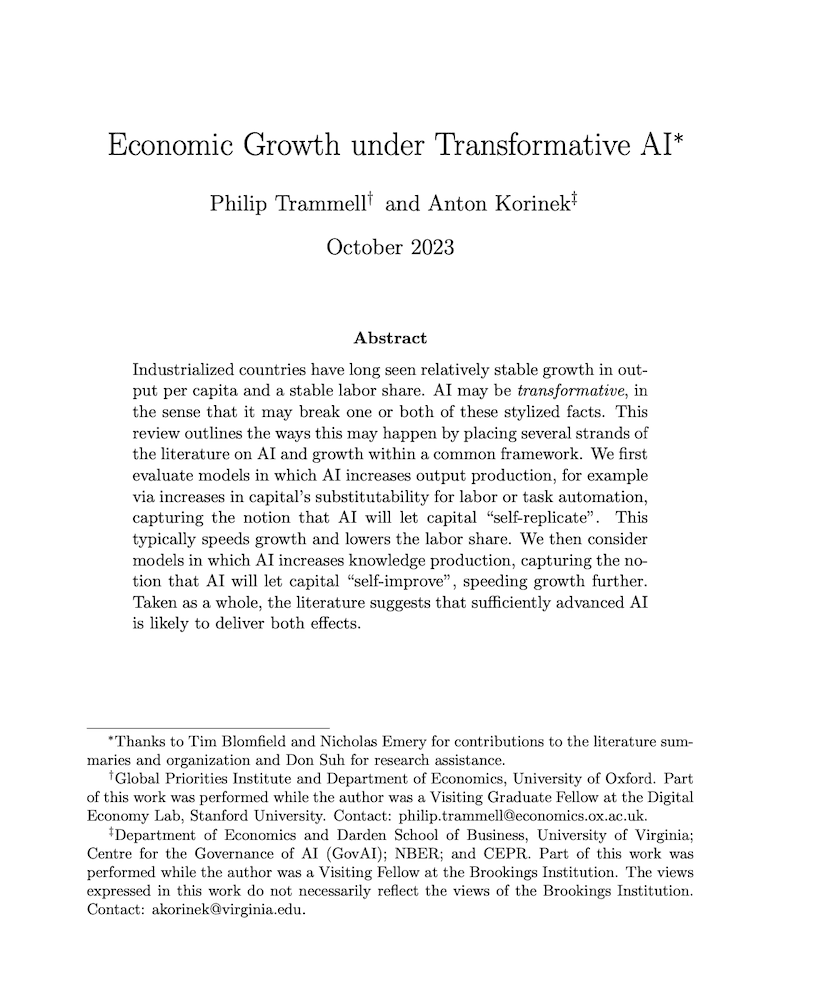Economic growth under transformative AI
Philip Trammell (Global Priorities Institute, Oxford University) and Anton Korinek (University of Virginia, NBER and CEPR)
GPI Working Paper No. 8-2020, published in the National Bureau of Economic Research Working Paper series and forthcoming in the Annual Review of Economics
Industrialized countries have long seen relatively stable growth in output per capita and a stable labor share. AI may be transformative, in the sense that it may break one or both of these stylized facts. This review outlines the ways this may happen by placing several strands of the literature on AI and growth within a common framework. We first evaluate models in which AI increases output production, for example via increases in capital's substitutability for labor or task automation, capturing the notion that AI will let capital “self-replicate”. This typically speeds up growth and lowers the labor share. We then consider models in which AI increases knowledge production, capturing the notion that AI will let capital “self-improve”, speeding growth further. Taken as a whole, the literature suggests that sufficiently advanced AI is likely to deliver both effects.
Other working papers
Numbers Tell, Words Sell – Michael Thaler (University College London), Mattie Toma (University of Warwick) and Victor Yaneng Wang (Massachusetts Institute of Technology)
When communicating numeric estimates with policymakers, journalists, or the general public, experts must choose between using numbers or natural language. We run two experiments to study whether experts strategically use language to communicate numeric estimates in order to persuade receivers. In Study 1, senders communicate probabilities of abstract events to receivers on Prolific, and in Study 2 academic researchers communicate the effect sizes in research papers to government policymakers. When…
Economic inequality and the long-term future – Andreas T. Schmidt (University of Groningen) and Daan Juijn (CE Delft)
Why, if at all, should we object to economic inequality? Some central arguments – the argument from decreasing marginal utility for example – invoke instrumental reasons and object to inequality because of its effects…
Ethical Consumerism – Philip Trammell (Global Priorities Institute and Department of Economics, University of Oxford)
I study a static production economy in which consumers have not only preferences over their own consumption but also external, or “ethical”, preferences over the supply of each good. Though existing work on the implications of external preferences assumes price-taking, I show that ethical consumers generically prefer not to act even approximately as price-takers. I therefore introduce a near-Nash equilibrium concept that generalizes the near-Nash equilibria found in literature on strategic foundations of general equilibrium…

